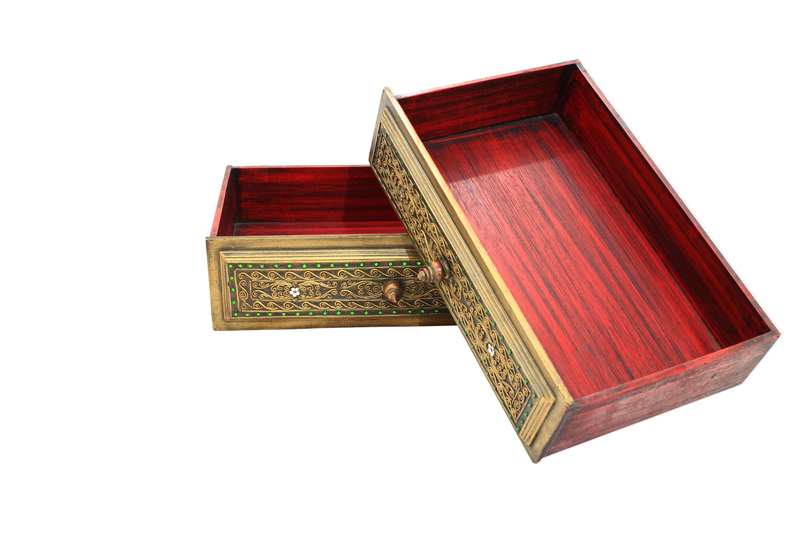Transforming Old Pots and Pans: Recycle or Donate
Have you ever opened your kitchen cabinets only to find a stack of old pots and pans you no longer use? Whether they're warped, scratched, or just outdated, it's common to wonder what to do with old cookware. Instead of relegating them to the landfill, why not explore the options to recycle or donate your unwanted kitchenware? In this comprehensive guide, we will explore eco-friendly, practical, and creative methods for transforming your unwanted pots and pans--better for your home and the planet.

Why Should You Recycle or Donate Old Pots and Pans?
Almost every home, at some point, accumulates extra, unused, or damaged kitchenware. As we become more conscious of our environmental impact, disposing of these items thoughtfully is crucial.
- Reduce Landfill Waste: Millions of tons of metal and other materials end up in landfills every year. Recycling reduces this toxic burden.
- Conserve Valuable Resources: Metal, plastic, and glass can all be reprocessed and reused, saving precious raw materials.
- Support Communities: Donating pots and pans gives them a second life and assists people who cannot afford new cookware.
- Create Opportunities for Upcycling: With a little creativity, old cookware can become something completely new and useful in your home or garden.
Properly recycling pots and pans or donating kitchenware not only clears clutter but is a positive action for the environment and society.
Understanding Types of Old Cookware: What Can You Donate or Recycle?
Before disposing of your old pots and pans, identify their material. Options for recycling or donating largely depend on what the cookware is made of:
- Stainless Steel
- Aluminum
- Copper
- Cast Iron
- Nonstick (Teflon-coated) Pans
- Ceramic and Glass Bakeware
Each type may have different recycling or donation requirements. Let's dive into the options for each.
Recycling Pots and Pans
Old cookware is often made from metals that can be recycled, but curbside municipal recycling doesn't always accept them. Here's how to proceed:
1. Check Your Local Recycling Guidelines
Most local recycling centers accept scrap metal, but you should first contact your local recycling facility to understand their exact requirements. Many require you to drop cookware off directly rather than placing it in curbside bins.
2. Remove Non-Metal Parts
If your pot or pan has plastic, glass lids, or wooden handles, try to separate them before recycling. This step is crucial because mixed materials can contaminate recycling streams.
3. Identify Metal Type
- Stainless steel and aluminum pans are commonly accepted at scrap metal yards.
- Copper cookware can be quite valuable--bring it to a dedicated metal recycling facility.
- Cast iron is also recyclable but heavy. Sometimes, it's reused for garden or decorative uses (more on this later!).
4. What About Nonstick or Teflon-Covered Cookware?
Unfortunately, nonstick pots and pans with damaged surfaces are more challenging to recycle. Some scrap yards accept them if all plastic and non-metal components are removed. Alternatively, check if your manufacturer or a local program accepts used nonstick cookware for recycling.
Where to Donate Old Pots and Pans
If your old cookware is still functional, donating is a wonderful way to help others. Many homes, shelters, and charities welcome pots, pans, and bakeware.
- Thrift Stores: National chains and local stores often accept gently used cookware. Ensure pots and pans are clean, not rusty or heavily chipped, and have matching lids.
- Shelters and Transitional Housing: Domestic violence and homeless shelters often need donations of kitchenware. Call ahead to confirm their needs.
- Food Banks: Some food donation programs also accept cookware for families establishing homes.
- Community Kitchens and Soup Kitchens
- College Students and Young Adults: Donate through community groups or online forums to help students and young families furnish their first kitchens.
Best Practices for Donating Pots and Pans
- Only donate clean and usable items.
- If possible, pair items with matching lids.
- Avoid donating scratched or peeling nonstick pans--these can be hazardous.
- Label or group pan sets together for easier distribution.
Upcycling and Creative Transformations for Old Cookware
Don't want to recycle or donate? Transform your pots and pans into something new with a little creativity! Upcycling is a fun and trendy way to give old items new life in your home or garden.
Garden Planters and Outdoor Decor
- Pots and Pans Planters: Old cast iron pots or deep saucepans make excellent planters. Drill a few holes for drainage, fill with soil, and you have a unique container garden!
- Hanging Baskets: Use handles or attach chains to create hanging planters for flowers or herbs.
- Birdbaths and Feeders: Large shallow pans or lids can be repurposed as water dishes for birds or creative bird feeders.
Home Organization and Decor
- Wall Art: Arrange mismatched or uniquely shaped pans on a kitchen wall for quirky, rustic decor.
- Magnetic Boards: Old metal baking sheets or skillets make perfect bases for a DIY magnetic board for notes, photos, and reminders.
- Use small saucepans or muffin tins for organizing small items like screws, craft supplies, or office supplies.
Unique Lighting Fixtures
With proper wiring, colanders and large pans make distinctive pendant lights for kitchens, sheds, or patios. Their holes create interesting light patterns!
Get the Kids Involved
- Turn lightweight pans into fun musical instruments (think kitchen-band adventures!)
- Let children paint or decorate old bakeware as creative projects for the home or garden.
How to Prepare Old Pots and Pans for Recycling or Donation
Regardless of the route you choose, preparing your kitchenware properly is important.
- Clean Thoroughly: Wash away any food residue, oils, or grease.
- Remove Non-Metal Components: Take off plastic, silicone, or wooden handles or lids if you plan to recycle.
- Pair Sets and Lids: Keep matching sets together for donation.
- Check Condition: Only donate items that are free from dangerous cracks, chips, or big scratches.
- Transport Safely: Use boxes or bags to prevent sharp edges from causing injury.
Frequently Asked Questions About Pots and Pans Recycling and Donation
Can You Recycle Pots and Pans in Curbside Bins?
Most municipal curbside programs do not accept large metal items or pans due to contamination risks and equipment damage. Always check with your local recycler for specific guidelines.
How Do You Know if a Pan is Safe to Donate?
Inspect pans for structural damage, chips, flaking coatings, and excessive wear. Any pan with a damaged nonstick surface should be recycled instead of donated.
Can Old Nonstick Cookware Be Recycled?
Some facilities accept nonstick pans if the plastic parts are removed, but many do not. Look for manufacturer take-back programs or specialty recycling events for nonstick items.
Are There Tax Benefits to Donating Old Pots and Pans?
Many registered charities provide tax-deductible receipts for donations. Keep a list of items, their condition, and the donated value for your records.
What If My Cookware Is Vintage or Collectible?
Old cast iron, copper, and branded cookware can have value. Before recycling, research online or consult a specialist to determine whether your item is collectible.

Other Ways to Responsibly Dispose of Old Pots and Pans
If none of the above options suit your needs, here are some additional ideas:
- Artist supply donation: Art schools or studios sometimes use old metal objects for sculpture and art projects.
- Community yard sales: Give away or sell gently used cookware to neighbors.
- Online marketplace giveaway: List free cookware on local online boards like Craigslist, Facebook Marketplace, or Nextdoor.
Conclusion: Make a Positive Impact by Recycling or Donating Pots and Pans
You don't have to let old kitchenware clutter your cupboards or harm the environment. By recycling pots and pans, donating gently used items, or transforming old cookware into creative household objects, you actively contribute to a more sustainable, clutter-free, and compassionate world. Whether you're choosing to recycle cookware or provide it to someone in need, your actions make a difference. The next time you upgrade your pan set, remember: every pot and pan has more than one life.
Ready to Make the Change?
Next time you clean out your kitchen, use these tips to donate, recycle, or upcycle your old pots and pans. Share this guide with friends and family to inspire others to join the movement for a less wasteful, more resourceful future!